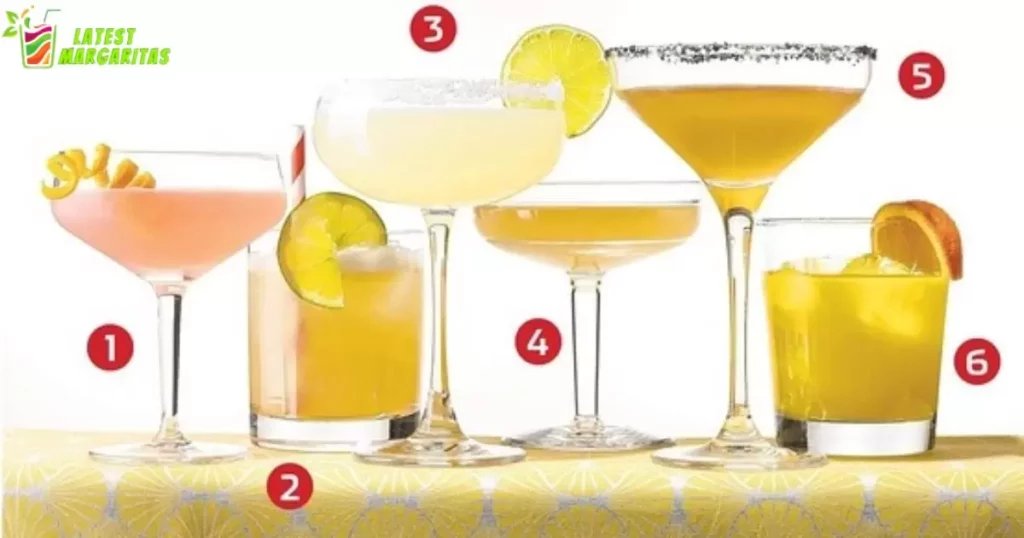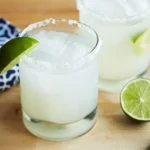Margarita mix is a pre-made cocktail mixer that simplifies the process of creating Margaritas. It typically combines lime juice, sweetener, and sometimes triple sec, offering a convenient way to enjoy the classic cocktail without the need for individual ingredients.
Ever wondered if that tempting Margarita mix hiding in your fridge packs a punch? Unravel the mystery of whether Margarita mix comes with its own built-in fiesta or if it’s just a tequila tease waiting for your personal touch! Let’s spill the lime on whether your next sip will be a mocktail or a party in a bottle.
The Margarita mix traces its roots back to the 1940s, believed to have originated in Mexico. It’s a concoction of lime juice, sweetener, and often triple sec, revolutionizing the way we savor this classic cocktail with a ready-to-pour twist.
Does a Margarita Mix Contain Alcohol?
Margarita mix itself does not typically contain alcohol. It serves as a non-alcoholic base that combines key ingredients like lime juice, sweetener, and sometimes triple sec, providing the essential flavors for a Margarita cocktail. To enjoy the full, spirited experience, one usually adds their preferred tequila when preparing the drink, allowing for a customizable and enjoyable mix of flavors.
Composition of Margarita Mix
Margarita mix serves as the foundation for crafting the beloved cocktail. Typically comprising lime juice, a sweetener, and sometimes triple sec, the mix itself is non-alcoholic. The lime juice provides the signature tartness, the sweetener balances the flavors, and triple sec adds a hint of orange essence.
Preparing a Margarita involves a straightforward process. Enthusiasts can easily customize their drink by adding their preferred tequila. This allows for a personalized touch, as individuals can choose the type and quantity of tequila to suit their taste. T
Variations in Margarita Mixes

Margarita mixes come in various forms, offering convenience and flexibility to consumers. Ready-to-drink mixes provide a hassle-free option for those seeking instant Margarita gratification. These pre-made mixes are often non-alcoholic, requiring only the addition of tequila to complete the cocktail.
On the other hand, concentrated mixes allow users to control the intensity of flavors and sweetness by diluting them with water or soda. Flavored Margarita mixes have also gained popularity, introducing exciting variations to the classic recipe.
It contains additional flavorings, it’s crucial to note that the base mix remains non-alcoholic. Flavors like strawberry, mango, or watermelon can enhance the Margarita experience without altering the alcohol content. It’s essential for consumers to read labels carefully, as some flavored mixes might contain artificial or natural extracts but remain free of alcohol.
To provide a quick reference, here’s a table summarizing key data related to Margarita mixes.
| Type of Margarita Mix | Alcohol Content | Notes |
| Ready-to-drink | Usually non-alcoholic | Requires addition of tequila |
| Concentrated | Usually non-alcoholic | Dilution with water or soda may be required |
| Flavored mixes | Usually non-alcoholic | Flavors may vary, check labels for additives |
Consumer Awareness
Consumer awareness plays a pivotal role in enjoying Margarita mix responsibly and to its fullest potential. When perusing the shelves for the perfect mix, taking a moment to read labels can make a significant difference. Understanding the ingredients and any potential additives ensures that consumers make informed choices, especially if they have specific preferences or dietary restrictions.
It’s crucial to differentiate between the Margarita mix itself, which is generally non-alcoholic, and ready-to-drink Margaritas, which may contain alcohol. This distinction empowers consumers to control the alcoholic content of their beverage, allowing them to add their preferred tequila in the desired quantity.
Disadvantages To Consider
Artificial Ingredients: Many commercially available Margarita mixes may contain artificial flavors, colors, and sweeteners to achieve a consistent taste. For individuals seeking a more natural or organic option, these additives can be a downside.
High Sugar Content: Margarita mixes can be high in sugar, contributing to the overall calorie content of the drink. For those watching their sugar intake or managing conditions like diabetes, this can be a drawback.
Lack of Freshness: Pre-packaged Margarita mix may lack the freshness and vibrancy of using freshly squeezed lime juice. The convenience of a mix often comes at the expense of the authentic, zesty flavor that fresh ingredients provide.
Limited Customization: While convenient, pre-made mixes may limit the ability to customize the Margarita to personal taste preferences. Individuals who enjoy experimenting with different tequilas, sweeteners, or citrus flavors may find pre-packaged mixes somewhat restrictive.
Perceived Quality: Some cocktail enthusiasts argue that the taste and quality of a Margarita made from scratch surpass those made with a pre-made mix. The perceived authenticity and craftsmanship associated with handcrafted cocktails can be an important factor for certain consumers.
Ready to Drink vs Concentrate

Ready-to-drink Margarita mixes cater to those who crave convenience. These mixes come pre-mixed and are usually non-alcoholic, serving as a hassle-free base for Margaritas. Consumers can simply add their preferred tequila to achieve a quick and straightforward cocktail. While RTD mixes are time-saving, they may offer less flexibility in terms of customization compared to other options.
Concentrate: For those who enjoy a hands-on approach to mixology, concentrated Margarita mixes provide a customizable experience. These concentrates are typically non-alcoholic and offer the advantage of adjusting the sweetness and intensity of the Margarita by diluting them with water or soda. While they require a bit more effort, concentrates allow individuals to tailor the drink to their specific taste preferences.
Non-Alcoholic Flavors: Flavored Margarita mixes have expanded beyond the traditional lime flavor, offering variations like strawberry, mango, and peach. It’s important to note that these flavored mixes are generally non-alcoholic, allowing consumers to enjoy a burst of different tastes without adding extra alcohol. This makes them suitable for those who prefer a non-intoxicating option, such as the don julio margarita.
Conclusion
The world of Margarita mixes unveils a spectrum of choices catering to diverse preferences. The convenience of ready-to-drink mixes offers a quick Margarita fix, while concentrated options allow for a personalized touch. Flavored mixes introduce exciting variations without compromising the non-alcoholic nature of the base, providing a spectrum of tastes.
Consumer awareness becomes the key to navigating this landscape successfully. Reading labels is a simple yet effective practice to ensure informed decisions, especially concerning alcohol content and potential additives. The disadvantages, such as artificial ingredients and high sugar content, are essential considerations for those prioritizing naturalness and health.
The variety, coupled with awareness, empowers individuals to craft their ideal Margarita, whether it’s a quick mocktail or a carefully curated party in a bottle. So, the next time you reach for that Margarita mix, the choice is not just between flavors but also between convenience and customization.
FAQs
Are there ready-to-drink Margarita mixes with added alcohol?
Some ready-to-drink Margarita mixes may include added alcohol. Consumers should read labels carefully to understand the product’s content.
What are the disadvantages of using Margarita mix?
Disadvantages may include artificial ingredients, high sugar content, and a perceived lack of freshness compared to using fresh ingredients.
Can I use Margarita mix for drinks other than Margaritas?
Yes, Margarita mix can be a versatile mixer. Experiment with it in other cocktails or mocktails for a unique twist.
How can I ensure consumer awareness when purchasing Margarita mix?
Practice consumer awareness by reading labels, understanding the distinctions between mix types, and differentiating between the mix itself and ready-to-drink Margaritas, which may already contain alcohol.





